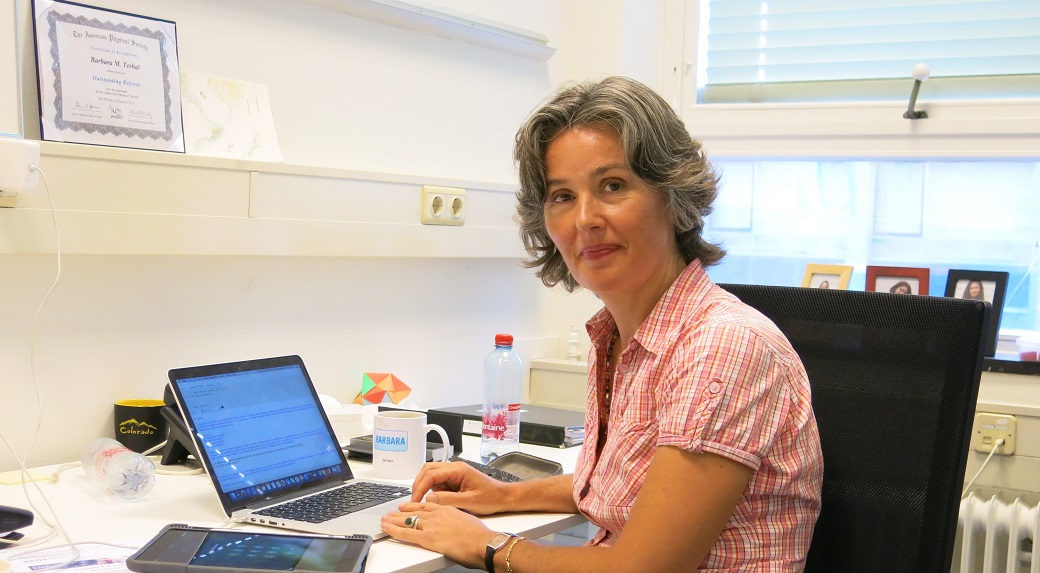Who are these people working or studying on campus? Meet Dr Barbara Terhal, a professor in quantum computing at QuTech. “Creativity is not a given thing at any point in life.”
Barbara Terhal: “It’s still a question whether we can really pull this off, building a quantum computer as we have our classic computers now.” (Photo: Heather Montague)
In 1999, Barbara Terhal became the first person in the Netherlands to earn a PhD in quantum computing. Now, she is a professor at TU Delft and leads the Terhal Group for quantum computing at QuTech.
“At the time I got my PhD, there was a lot of scepticism about quantum computation. Originally, I wanted to work on neural networks and then this whole new area of quantum computing emerged. I stepped into it and I don’t regret it. It doesn’t happen every day that a new area opens up so to be a part of a very young field is a privilege. You can ask simple questions and you have great discussions, and you are breaking new ground.
During my PhD I was already spending quite a bit of time in the United States for my research with IBM in New York. After I finished my PhD I went to IBM as a postdoc, then I was a postdoc at Cal Tech and then I became a research staff member at IBM and that was a very nice position. But I wanted a change at some point. I grew up very close to Delft and being a professor in the Netherlands, my native country, and helping to grow something here was really very appealing.
‘This is not something we solve in five years’
I came to TU Delft in September 2017. I enjoy being in the very dynamic environment here at QuTech with new challenges. There are interesting contrasts between industry and academia. There were good aspects of working in industry, like working in a team, having good support and good management, but a disadvantage was that it was a little bit of a stale environment. Creativity is not a given thing at any point in your life, so you have to find ways to research problems that you find interesting. But that’s part of the fun of working with young people. They’re not experienced, but they’re quick on the job. They’re eager and I think that’s really nice.
The goal of QuTech and my work is to get quantum technology to work and this is a very long-term thing. But I have always been a little more interested in the long run because it’s still a question whether we can really pull this off, building a quantum computer as we have our classic computers now. I don’t think this is going to be something that we solve in five years.”
Want to be featured in Humans of TU Delft? Or do you know someone with a good story to tell? Send us an e-mail at humansoftudelft@gmail.com
Heather Montague / Freelance writer



Comments are closed.